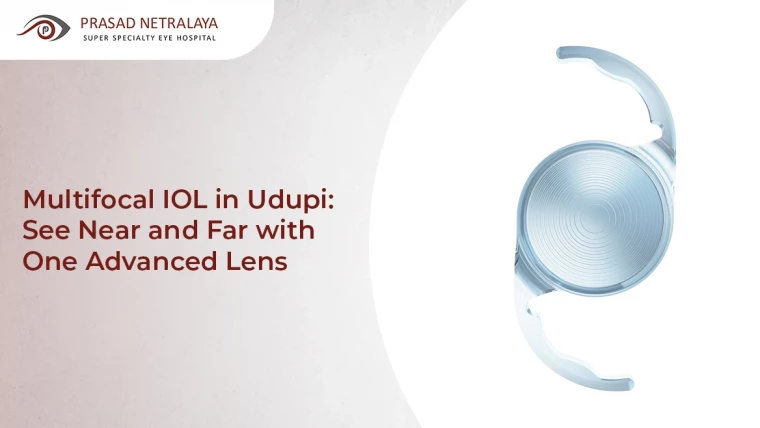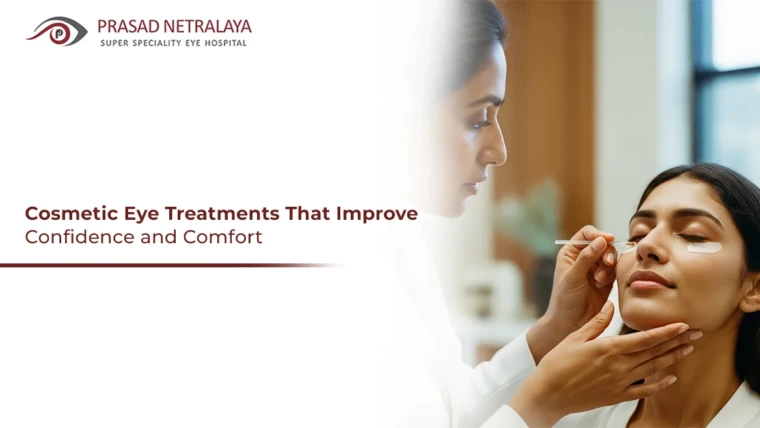Each year on June 27th, National Sunglasses Day is celebrated, a holiday solely dedicated to raising awareness about the importance of sunglasses in protecting our eyes from harmful ultraviolet rays.
As we step out of our house and are exposed to the sun rays, we often forget to put on a pair of sunglasses to shield our eyes. This is why on June 27th, people are reminded of the potential risks of UV exposure and the benefits that come with wearing sunglasses.
In this blog, we will decode everything you need to know about UV rays and their effects on the eyes. By emphasizing sunglasses importance, we will help you make informed choices to protect your eyes from harmful rays that dim down your eye health.
Table of Contents
Breaking down the myths regarding sun damage:
1st Myth: Darker lenses provide better protection
Fact: The darkness of the lenses is not equivalent to UV protection. Even sunglasses of lighter shades block UV rays. Quality sunglasses block 100% of UV rays irrespective of the lens color.
2nd Myth: Sunglasses are only for adults
Fact: Children are also victims of UV radiation, as they spend more time outdoors. It’s important to protect their eyes with quality sunglasses as well.
3rd Myth: Only polarized lenses offer sun protection
Fact: Polarized lenses play a key role in reducing glare but do not naturally provide sun protection. It’s always recommended to check for 100% UV protection on the label.
4th Myth: Expensive sunglasses provide better eye safety
Fact: Price does not guarantee eye safety. There are many affordable sunglasses that offer 100% UV protection too.
Eye problems linked to UV exposure:
When the eyes come in contact with UV rays, they can cause dangerous eye diseases. Some of these include:
- Pinguecula: A pinguecula is a protein or fat deposit that is formed in the white part of the eye. This can cause irritation and may affect how tears cover the eye
- Cataract: A cataract is a cloudy area in the eye lens. Constant UV ray exposure modifies lens proteins and leads to cataract formation, making the eyesight worse. Over time, cataract can make vision blurry, hazy and dull. This is why sunglasses are crucial in cataracts prevention.
- Cancer: Cancers of the eyelid, also known as basal cell carcinoma and squamous cell carcinoma, are related to UV exposure, unlike other types of ocular cancers.
- Age-related macular degeneration: Age-related macular degeneration blurs our vision due to the breakdown of the macula (the part of the eye that controls sharp vision). Wearing sunglasses can protect this layer and actively help in macular degeneration prevention
Tips for choosing the best sunglasses for eye protection:
While buying sunglasses, it’s important to keep a few points in mind to ensure your eyes receive the best kind of protection from UV rays:
1. Protection:
Make sure the sunglasses have the labels, UVA/UVB attached to them to ensure they provide complete protection to the eyes.
2. Lifestyle:
Choose sunglasses that fit your lifestyle and daily activities so that your shades don’t pose as a hindrance. Polarized lenses reduce glare from water or snow, and wraparound sunglasses offer extra protection near reflective surfaces, which is why it’s essential to choose the one that matches your daily activities.
3. Comfort level:
Choose sunglasses that are comfortable because you’re most likely to stop wearing them if they make you uncomfortable.
4. Fashion preference:
Pick sunglasses that match your fashion sense since they are both a health requirement and a fashion accessory
Additional Tips for UV Protection:
- Wearing sunglasses with a hat can be the ultimate combination to protect your eyes as well as your face
- Try staying indoors during peak sun hours, i.e., between 10 AM and 4 PM. Checking the UV index can also help you indicate the intensity of the UV radiation outdoors
- Consider the material of the lenses. Whether they are made of plastic or polycarbonate, look for lenses that provide 99 to 100 percent UV protection
- Pick sunglasses that fit properly, covering the skin around your eyes to prevent light from entering from the sides as well
Eye Irritation: 8 Common Causes and How To Treat It
Shield your vision from UV with Prasad Netralaya’s Specialists:
As we celebrate National Sunglasses Day on June 27th, it’s essential to understand the impact that UV rays can have on our eyes. From preventing cataracts and macular degeneration to safeguarding against harmful eye cancers, the importance of quality sunglasses cannot be overlooked.
To get your eyes checked for any issues or to seek expert advice, consider visiting Prasad Netralaya Hospital. Our dedicated team is here to help you choose the best protective eyewear and provide high quality eye health services.
Schedule your appointment today and protect your eyes by embracing the sunshine safely.
FAQs
1. Why are sunglasses regarded as an important accessory?
Besides being a fashion statement, sunglasses possess multiple benefits for your eyes. They prevent UV rays, and glare and contribute to better vision altogether.
Moreover, they also reduce eye strain and discomfort in bright conditions.
2. What are the negative effects of wearing sunglasses without UV protection?
Your pupils dilate (enlarge) when you see in dim light, this often creates an attraction point for UV. If the lens is just colored without any UV protection qualities, your eyes will be damaged.
3. Should I wear sunglasses every day?
Yes, wearing sunglasses has numerous advantages with just a very few disadvantages. They keep your eyes safe from UV rays and also improve your vision by providing a barrier against dangerous substances like debris, dirt and dust.
Dr. Vikram Jain, M.S. had his medical training (MBBS) from Kasturba Medical College, Mangalore, India. He did his master’s in Ophthalmic surgery from Kasturba Medical College, Manipal. He currently manages the Glaucoma department of Prasad Netralaya hospital.



